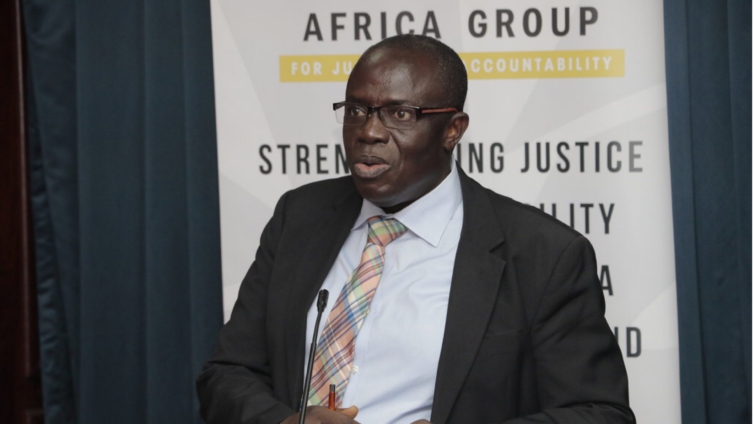A judge at the Appeals Court, Justice Dennis Dominic Adjei, has questioned the rationale behind financial demands made on applicants for information from public offices.
According to him, the financial demands attached to the Right To Information (RTI) Law make a mockery of the measures in place for fundamental human rights and must be scrapped.
He was speaking at this year's edition of the annual Lecture in Humanities at the Ghana National Academy of Arts and Sciences.
"A person who legitimately requires information but cannot pay for the prescribed fee would be denied his fundamental right to obtain information," he told the gathering.
The RTI Act was passed in 2019 to operationalise Article 21 (1) (f) of the 1992 Constitution, which stipulates that “all persons shall have the right to information, subject to such qualifications and laws as are necessary for a democratic society”.
The law gives people the right to access all sorts of information, apart from exempt information.
But one of the bones of contention has become the need to pay a fee for the production of certain kinds of information. Section 75 exempts certain types of information including information in the public interest from a fee.
Section 75
Fees and charges of public institution
(1) An applicant seeking access to information under this Act shall pay the fee or charge approved by Parliament in accordance with the Fees and Charges (Miscellaneous Provisions) Act,2009 (Act 793).
(2) Despite subsection
(1), a fee or charge shall not be payable for
(a) the reproduction of personal information of the applicant,
(b) the reproduction of personal information of a person on whose behalf an application is made;
(c) the reproduction of information which is in the public interest;
(d) information that should have been provided within the stipulated time under this Act;
(e) information to an applicant who is indigent;
(f) information to a person with a disability;
(g) time spent by an information officer or information reviewing officer in reviewing the information requested;
(h) time spent by an information officer or information reviewing officer in examining whether the information requested is exempt information; or
(I) preparing the information for which access is to be provided.
Many experts have cited the move as unfavourable if the recently-passed law is to see any fruition.
For instance, last year, the Media Foundation for West Africa (MFWA) dragged the NCA to court for demanding a ¢2,000 fee before it would provide it information on the list of radio stations it had shut down.
But the High Court presided over by Justice Gifty Agyei Addo, ruled that the NCA has the mandate to charge fees for its services hence the order to MFWA to pay ¢1,500; ¢500 less than the initial amount demanded.
Speaking at the event on May 5, Justice Dominic Adjei described such situations as unreasonable and posed a challenge, especially when their purpose was educational.
He insisted that "the fees to be paid by an applicant who applies to access information for public consumption is unreasonable, and the provision of payment of fees should be repealed," he added.
Monetising such a service, he believes, is not indicative of a democratic regime like Ghana's.
Latest Stories
-
CHRAJ recommends forensic audit of National Cathedral project
46 seconds -
I cried every three days at the beginning of my career – Gyakie
4 mins -
#ChoosePeaceGh Campaign: JoyNews partners Catholic Relief Services beyond 2024 December 7 Elections
12 mins -
CHRAJ report scratched the surface on “the double identity” of Rev. Kusi Boateng – Ablakwa
31 mins -
Elections: Akufo-Addo calls for unified front to combat political instability
43 mins -
Alidu Seidu ruled out for the season after suffering raptured ACL
44 mins -
Women advocate for tax waivers, clear timelines for implementation of economic policies
47 mins -
Disinformation, misinformation making our work tedious – NCCE
59 mins -
COP29: Africa expected more in new Climate Finance deal
1 hour -
Vice President Bawumia commends Lands Commission for digitalising its operations
1 hour -
By age 7, I knew everything I wanted to do in life – KOD
1 hour -
10 GWCL customers in Ashanti north celebrated for loyalty, timely water bill payment
1 hour -
Forex debt crisis at ECG: A threat to Ghana’s sovereignty and economic stability
1 hour -
Donewell Life Assurance rebrands to Pinnacle Life Insurance: A new era of excellence
2 hours -
NDC blames ECG’s poor revenue collection for energy sector challenges
2 hours

